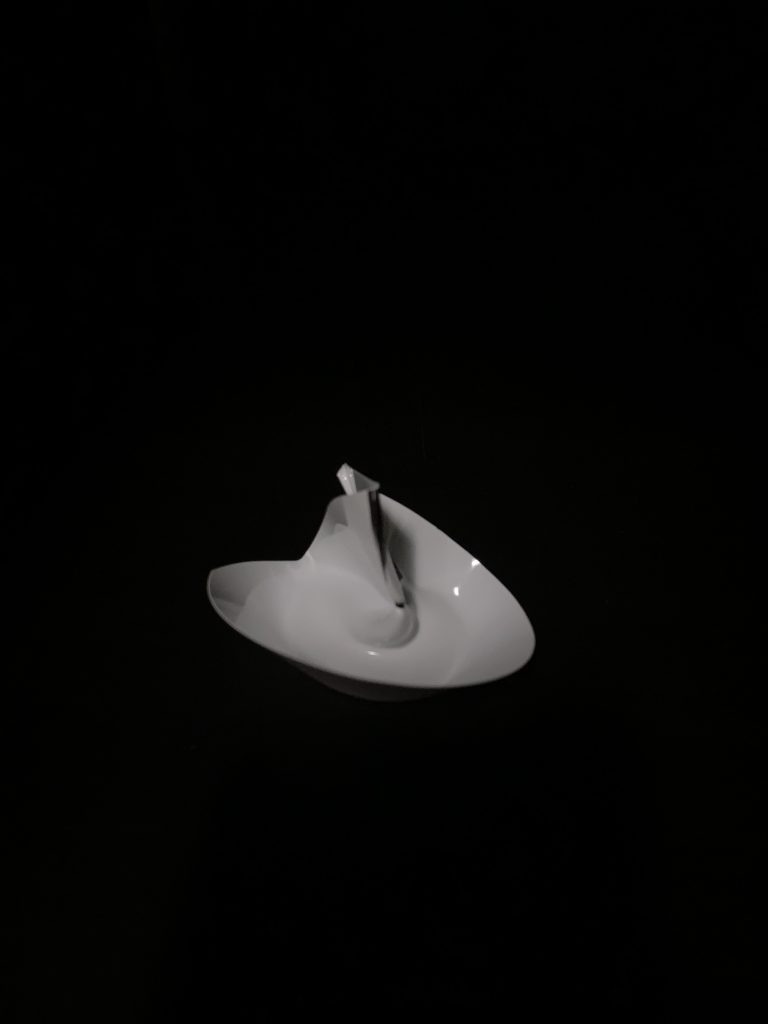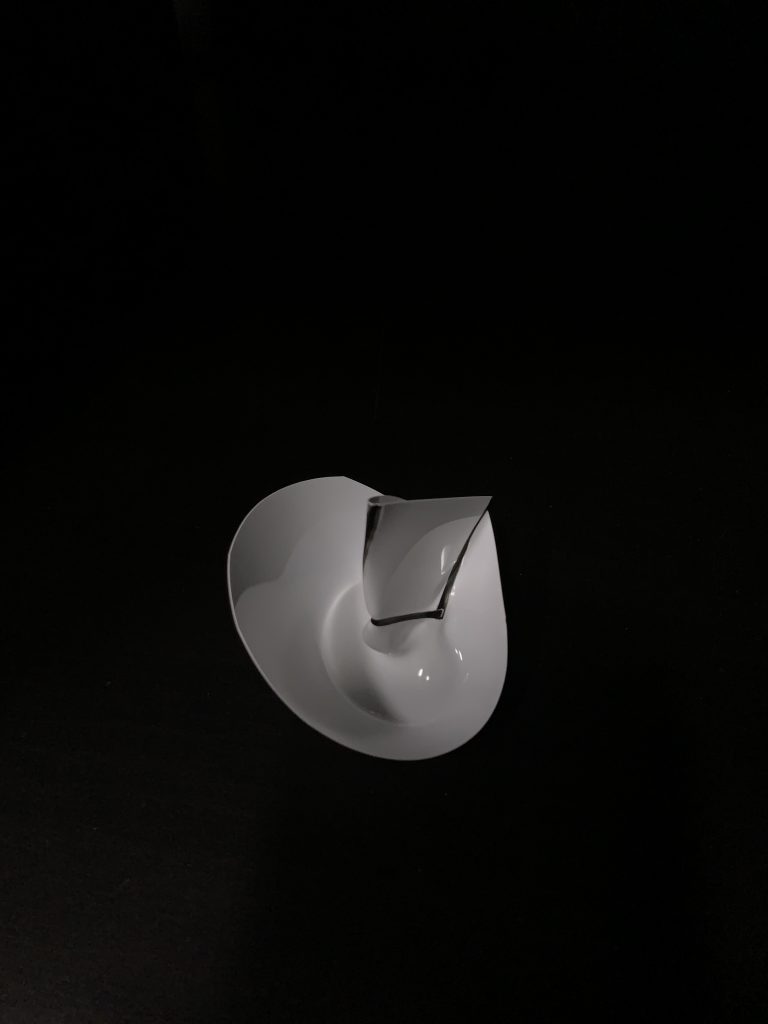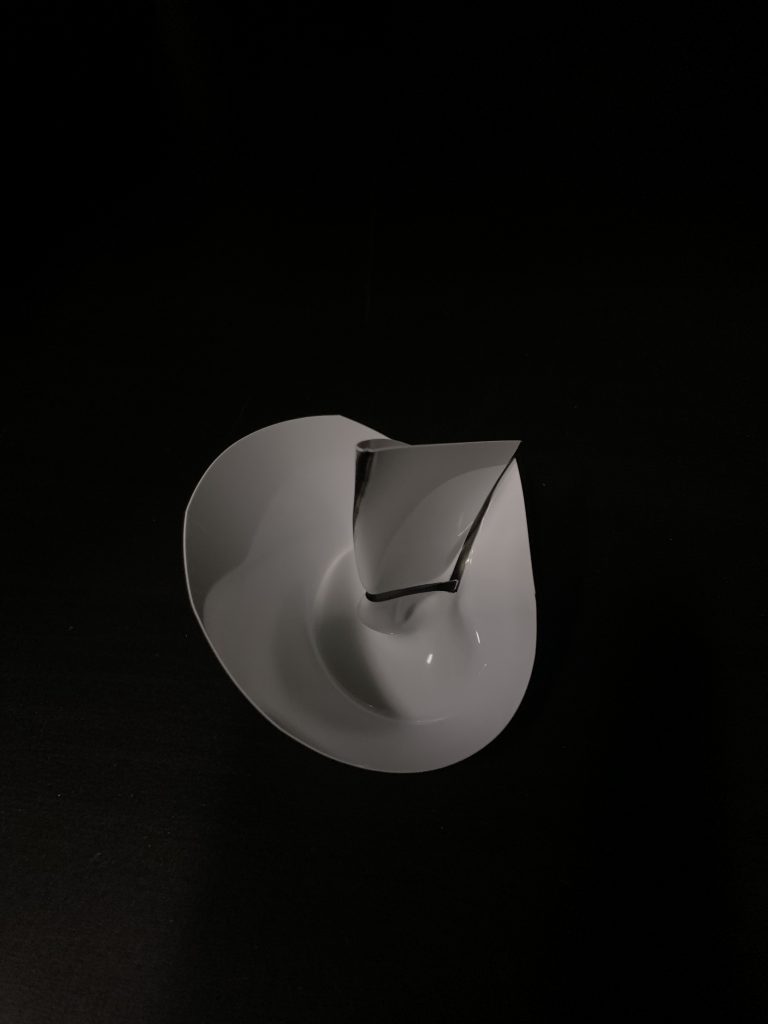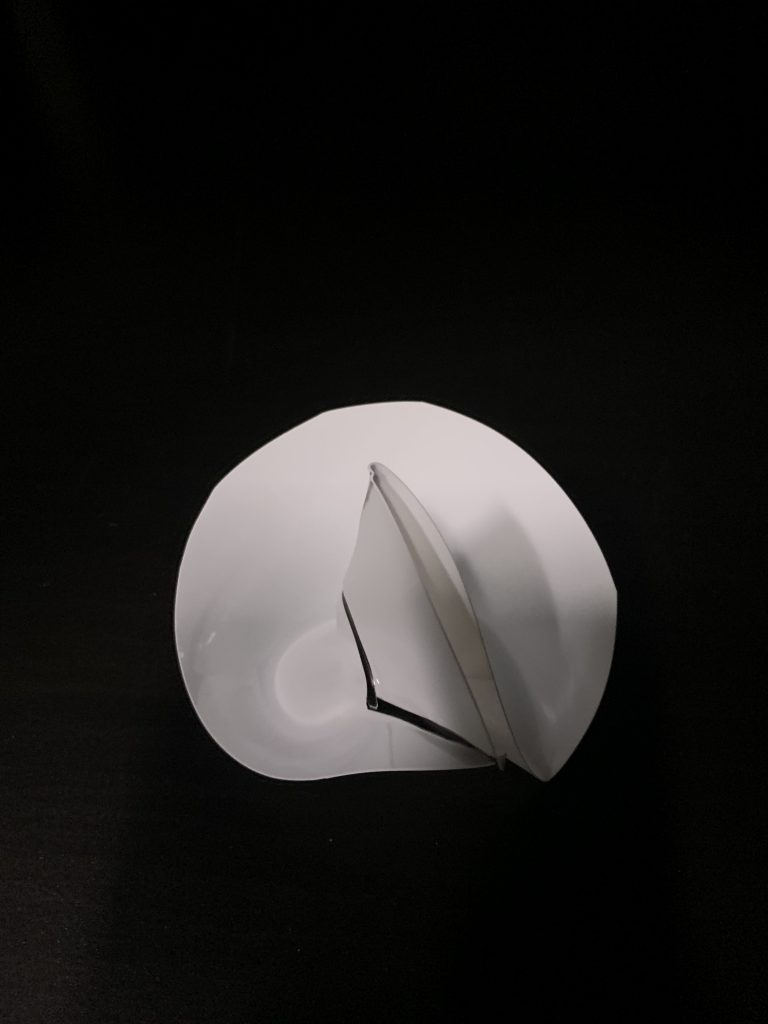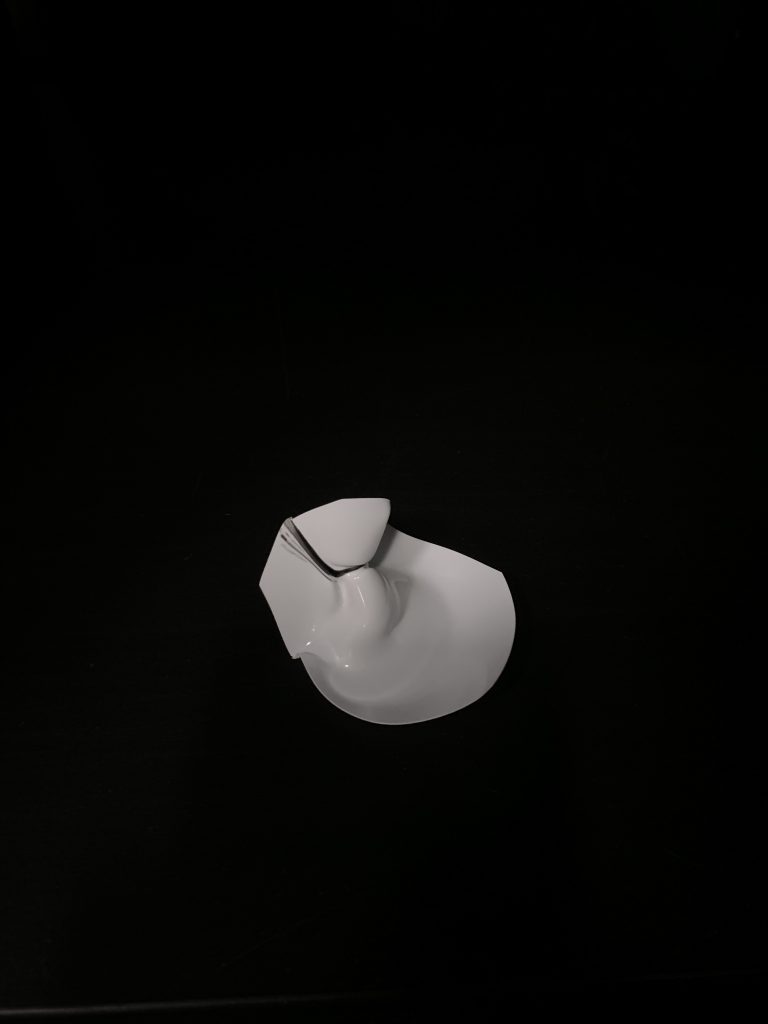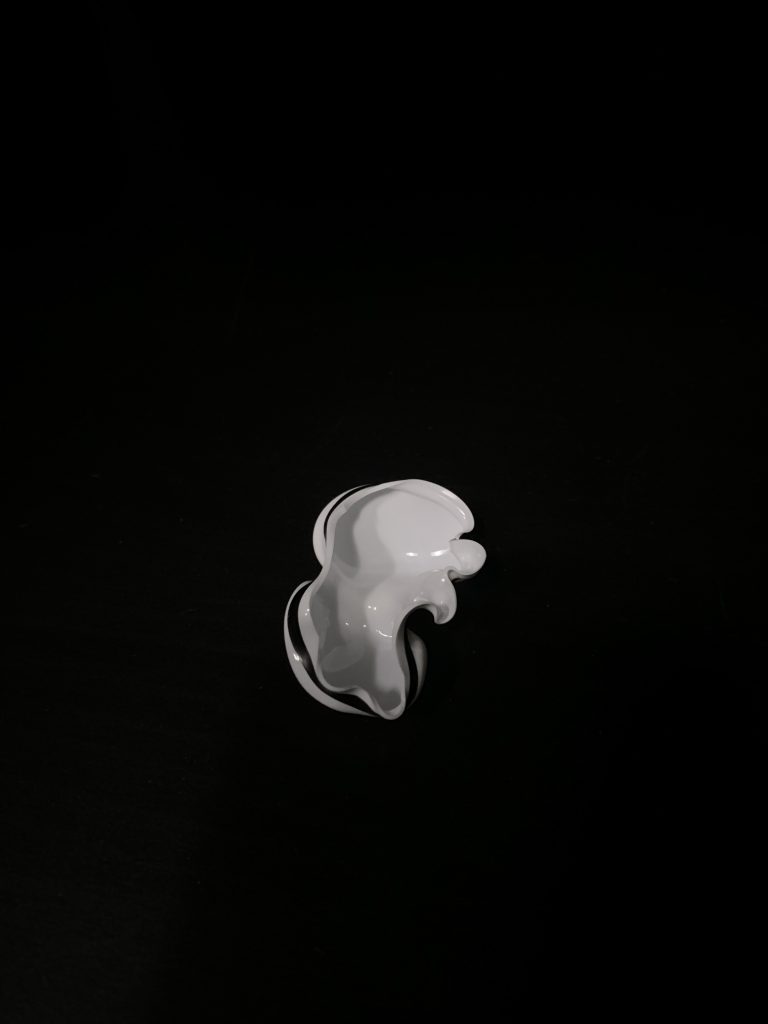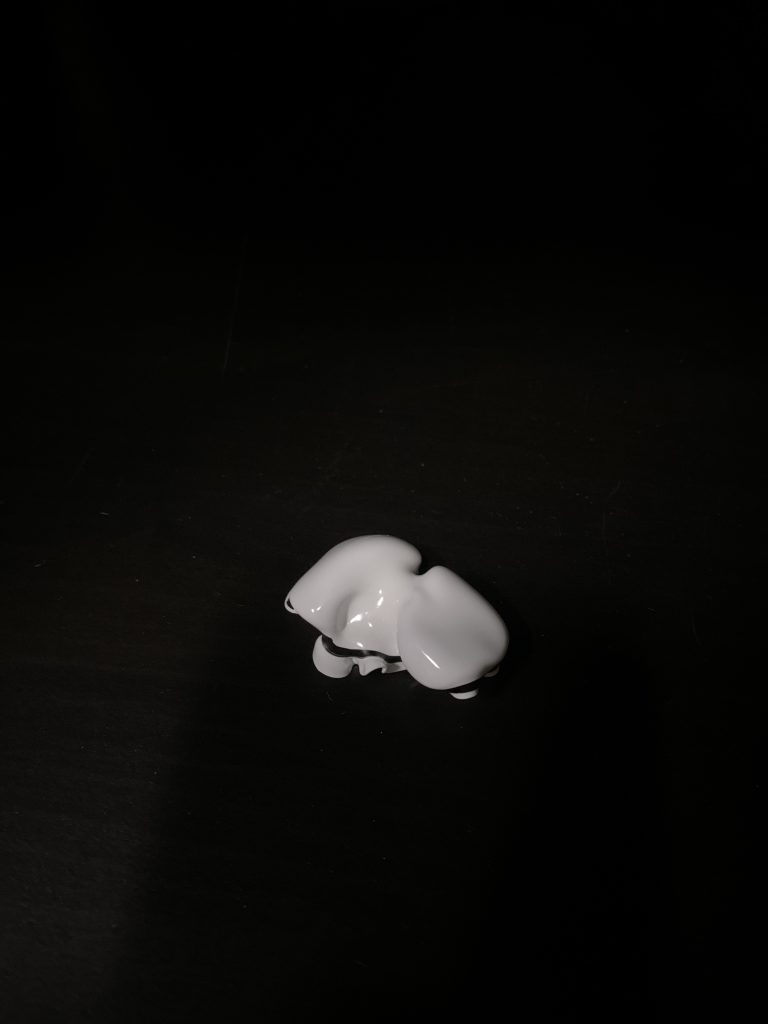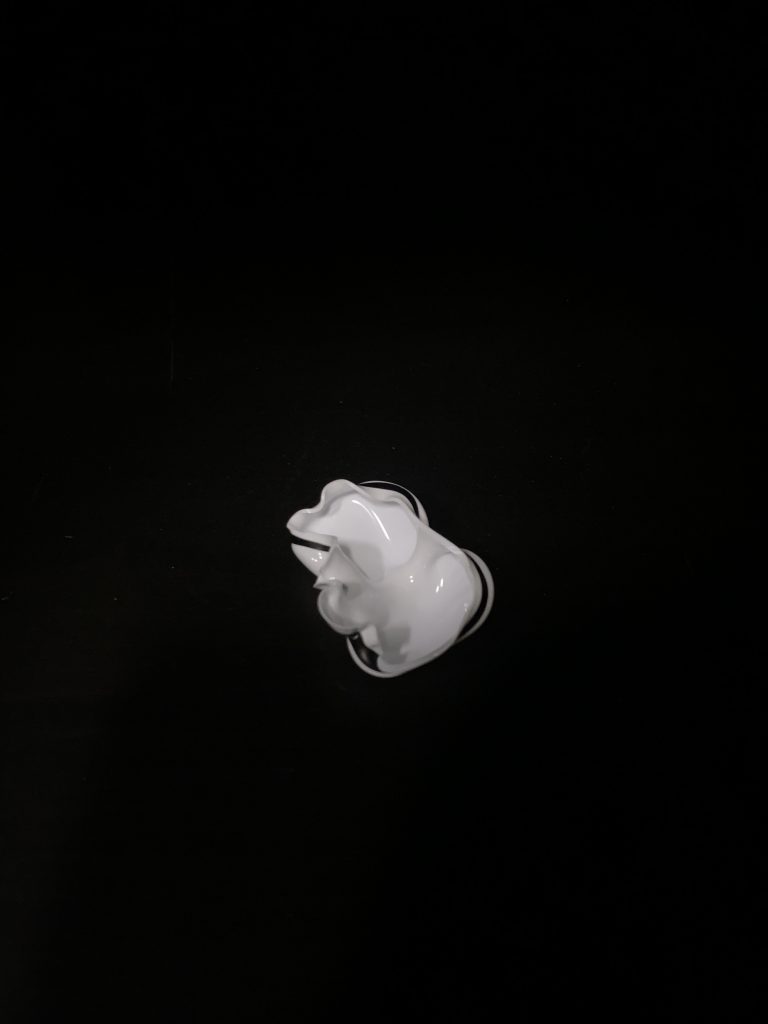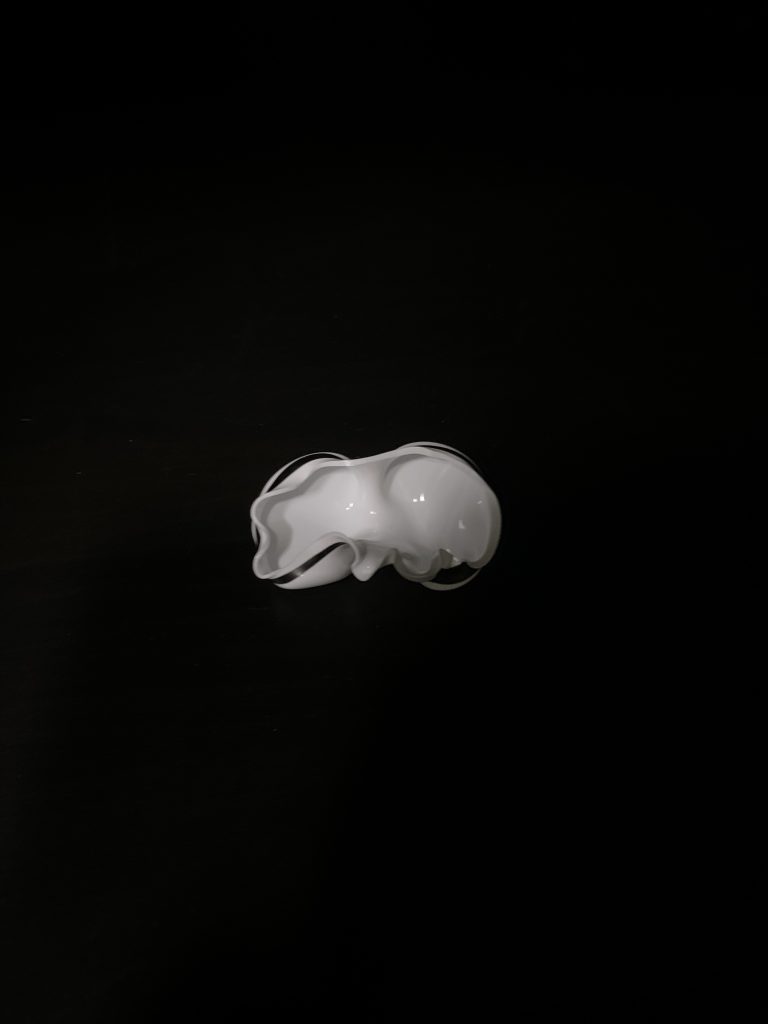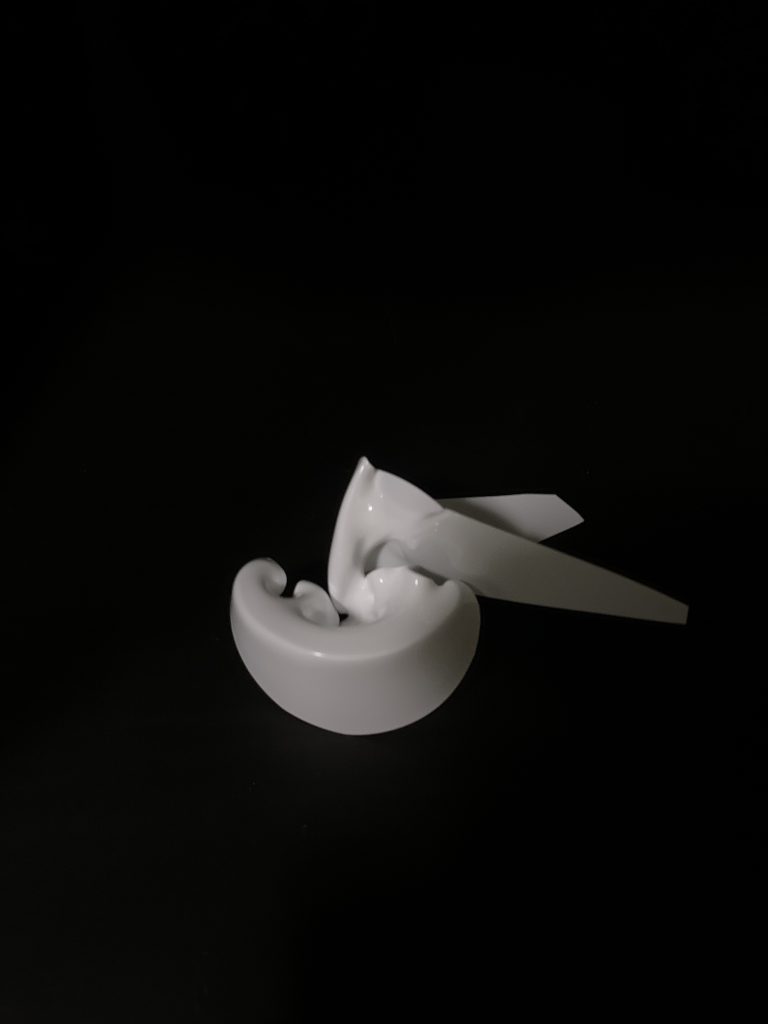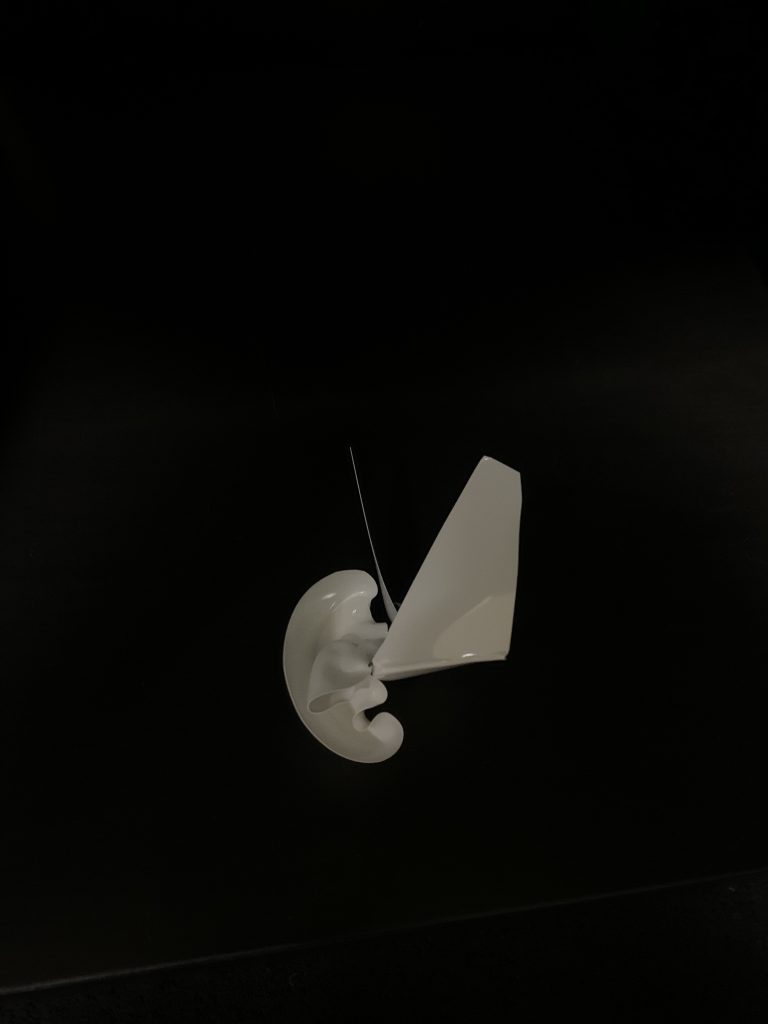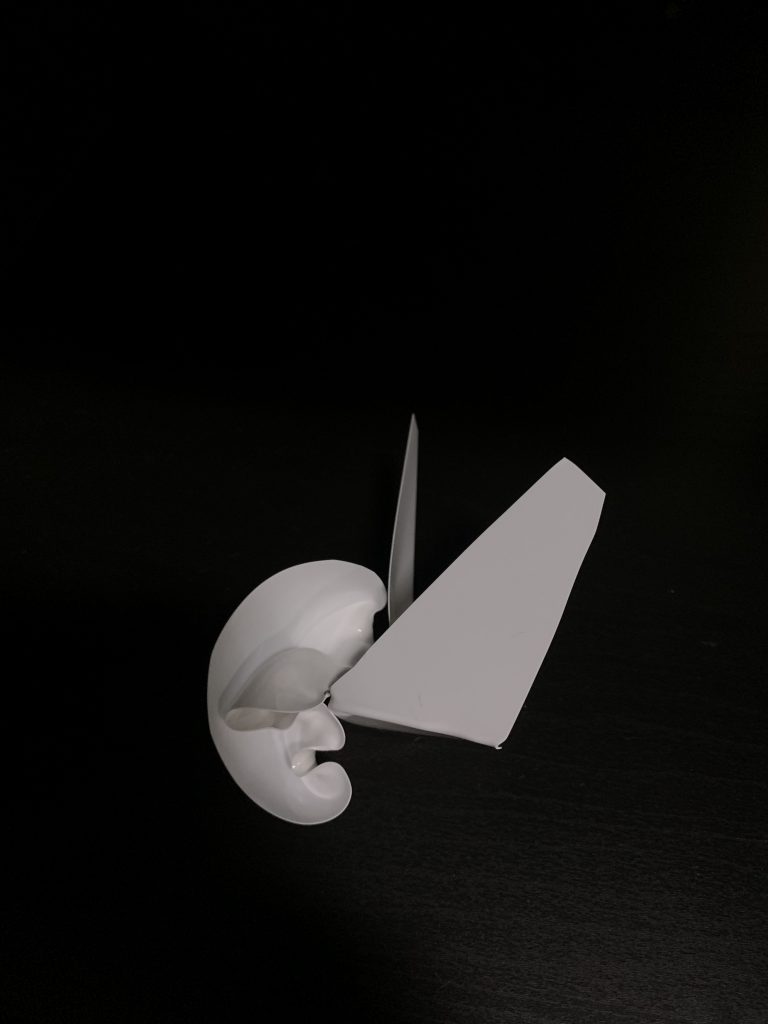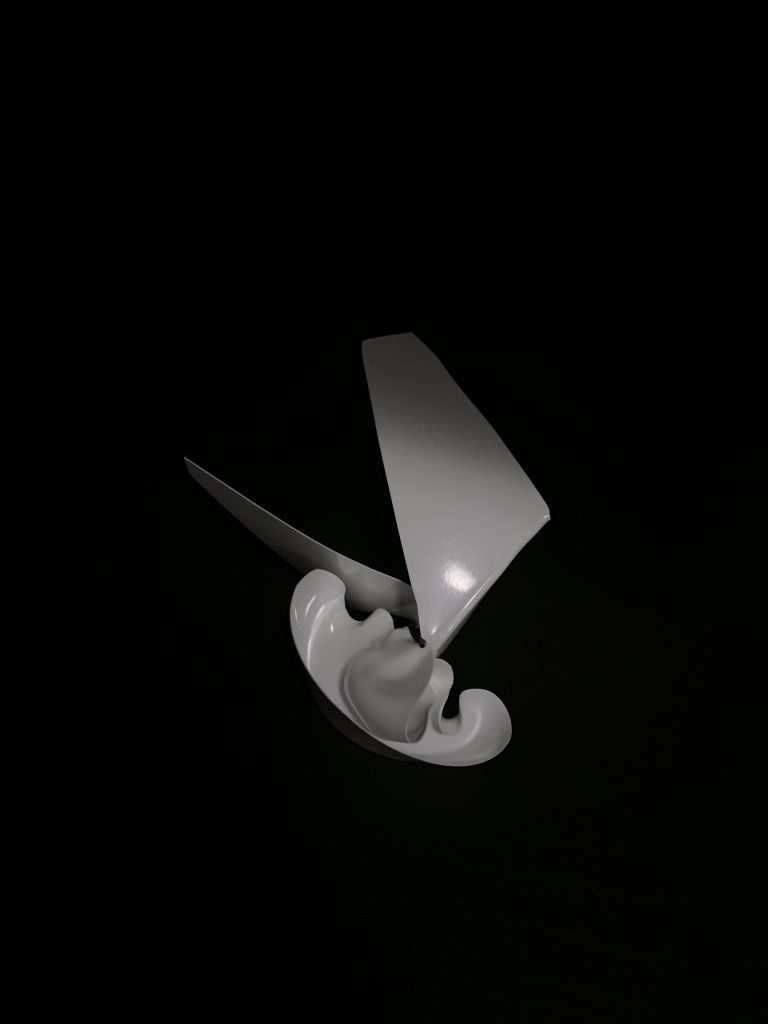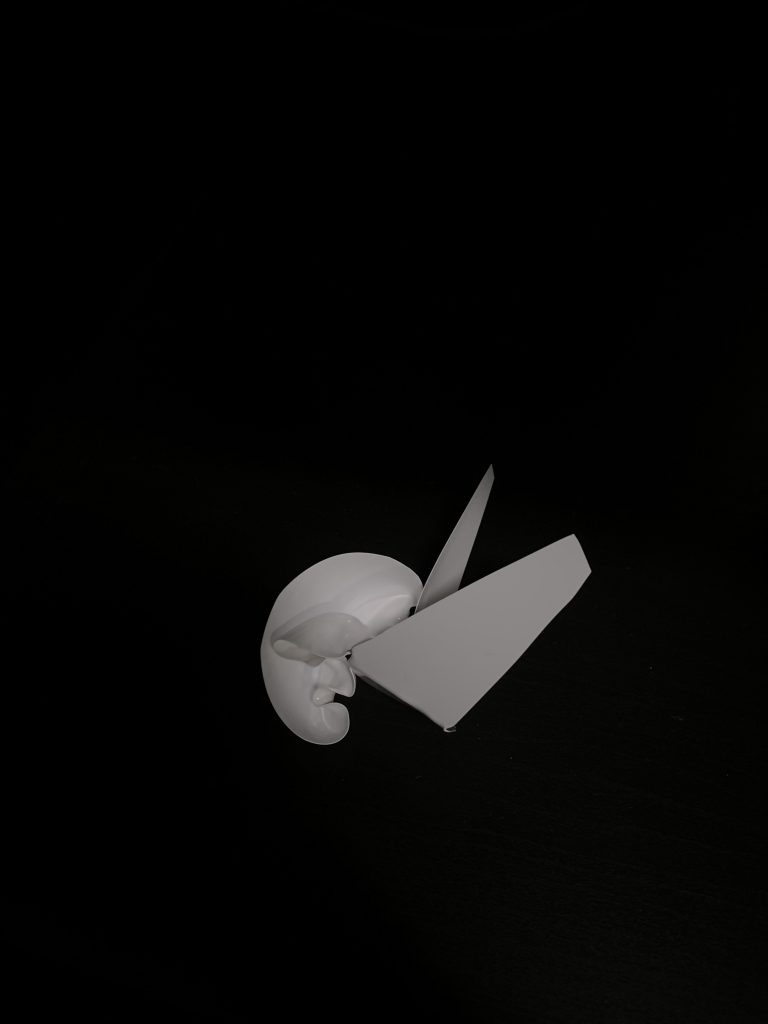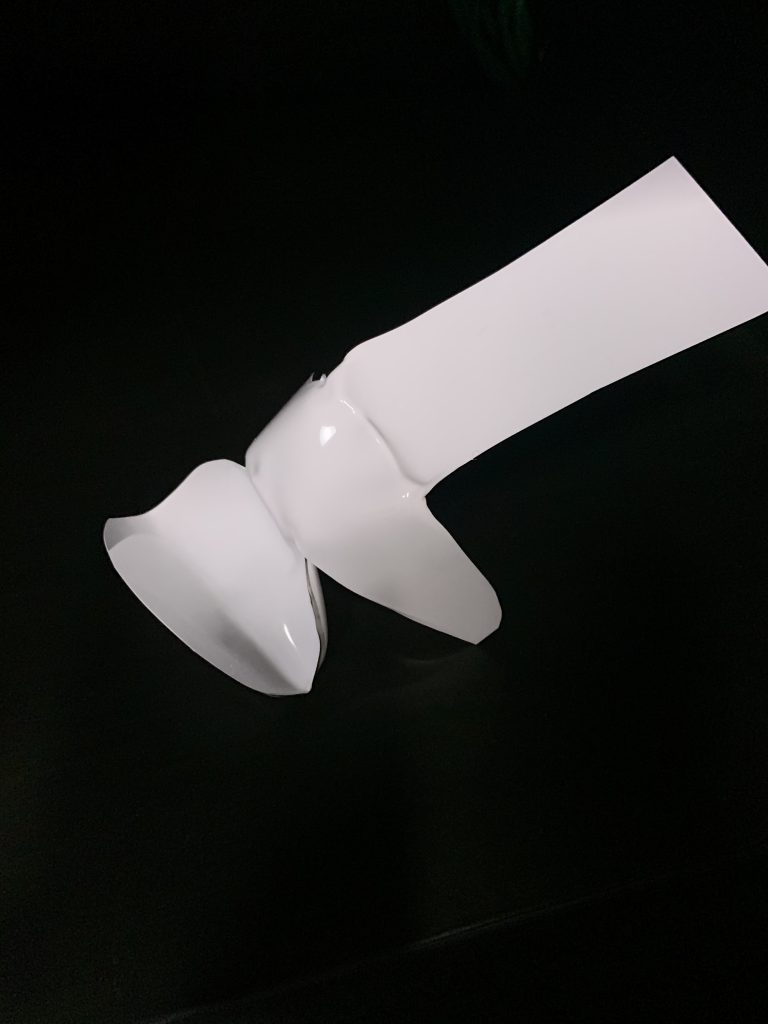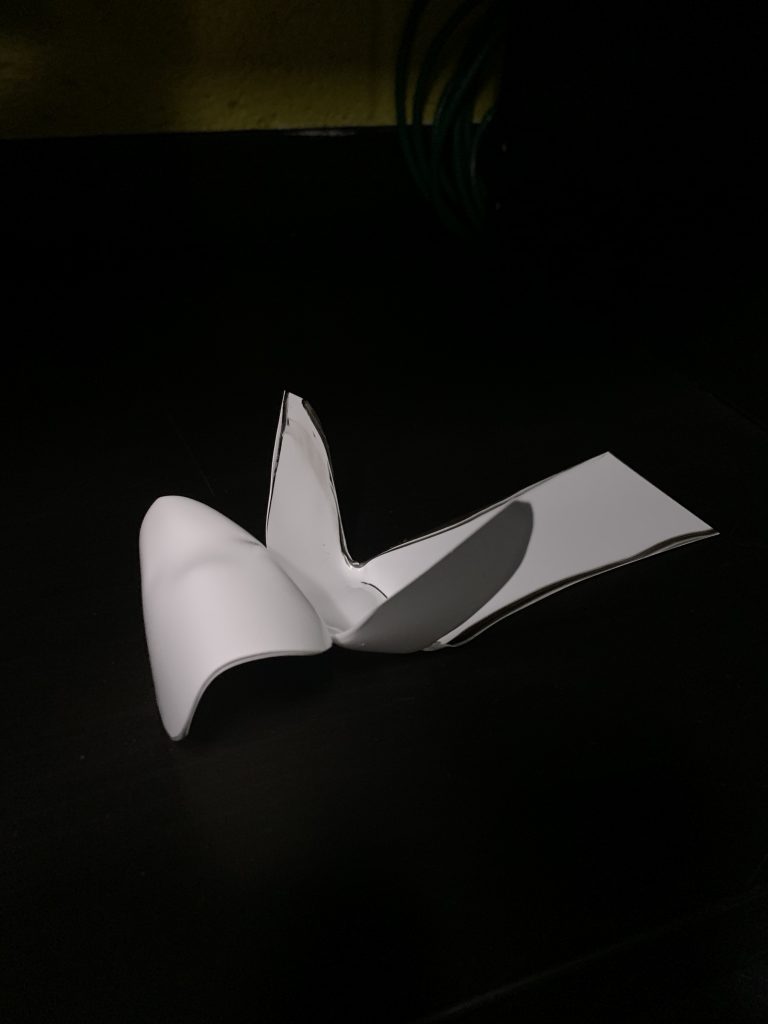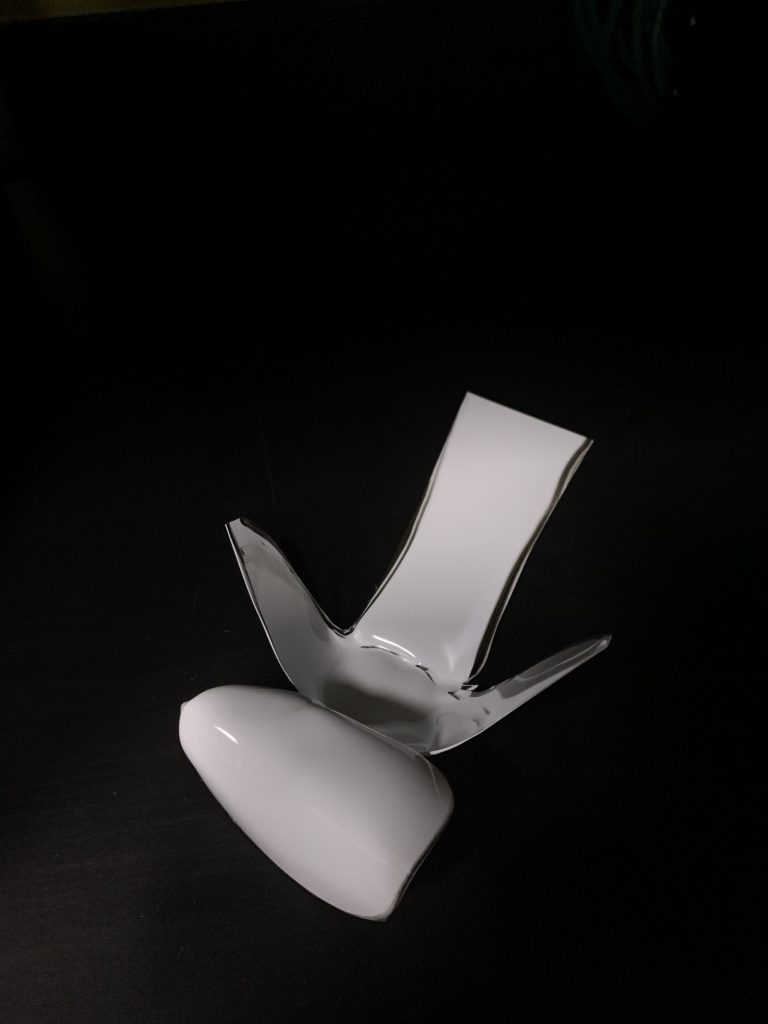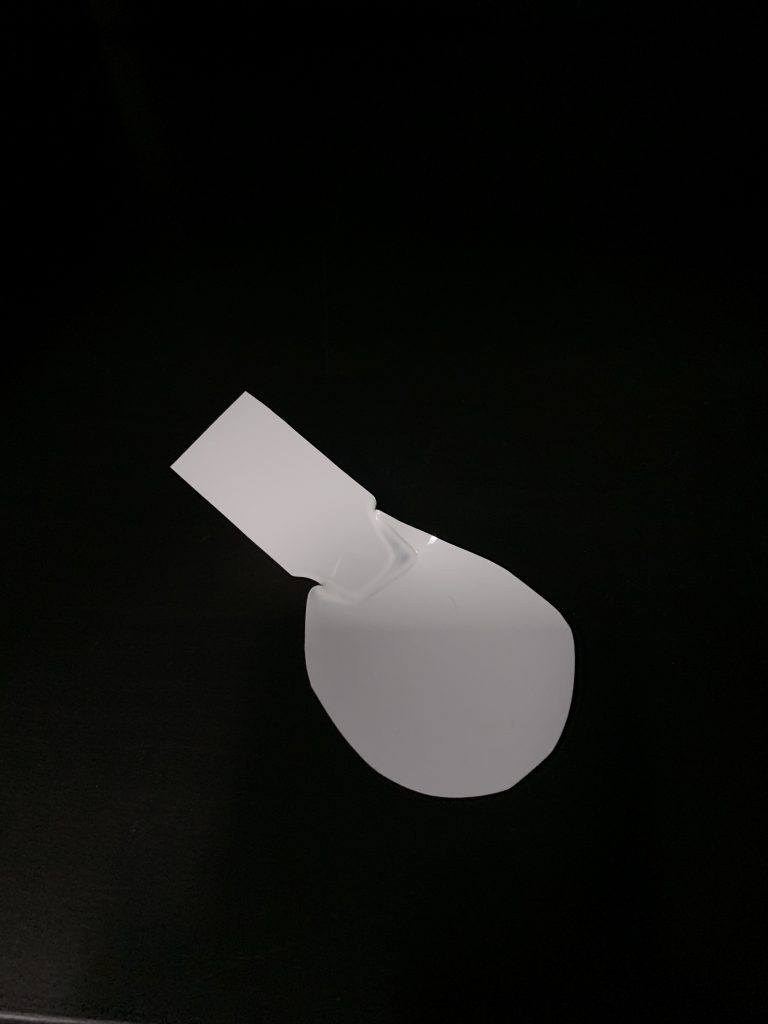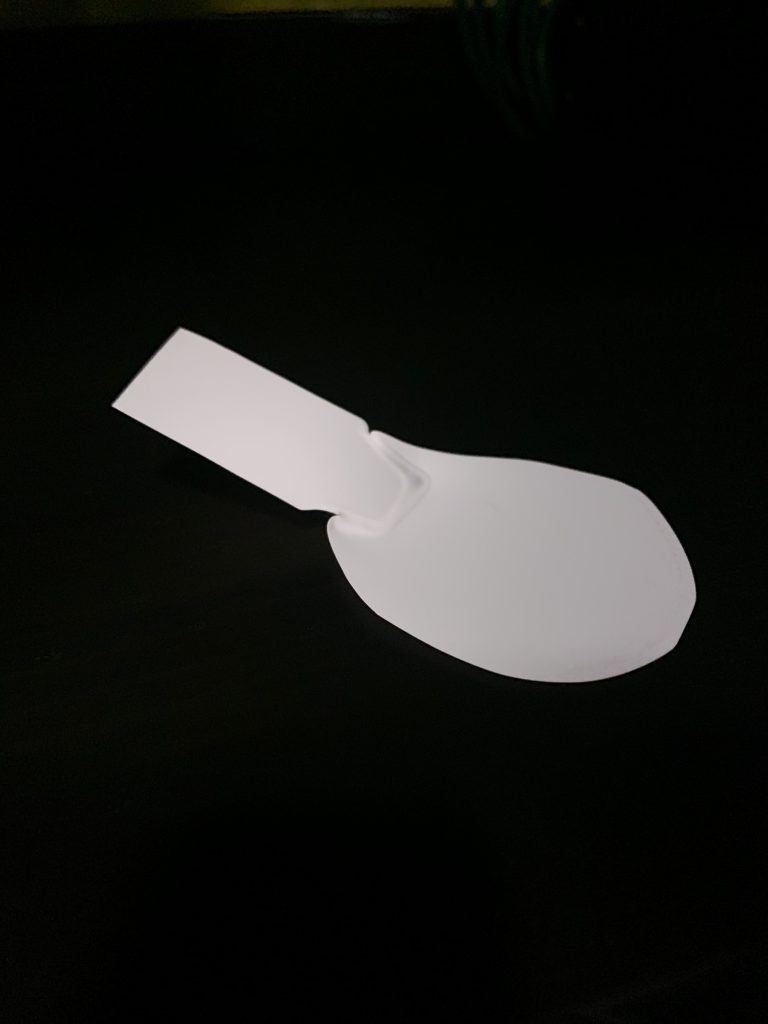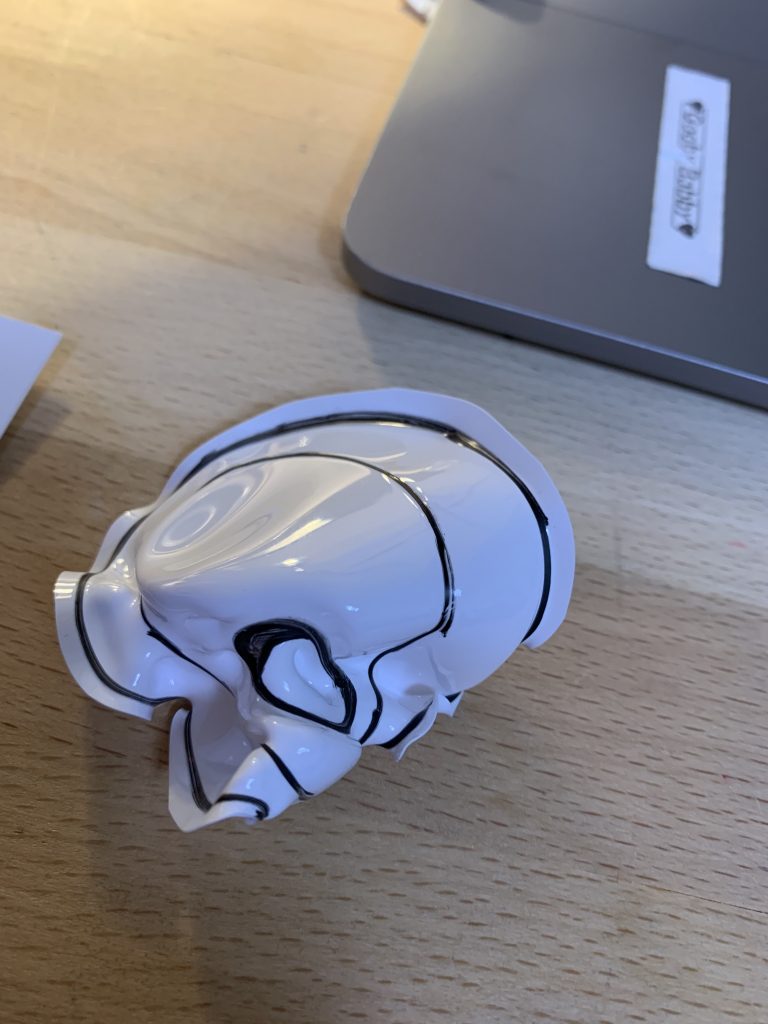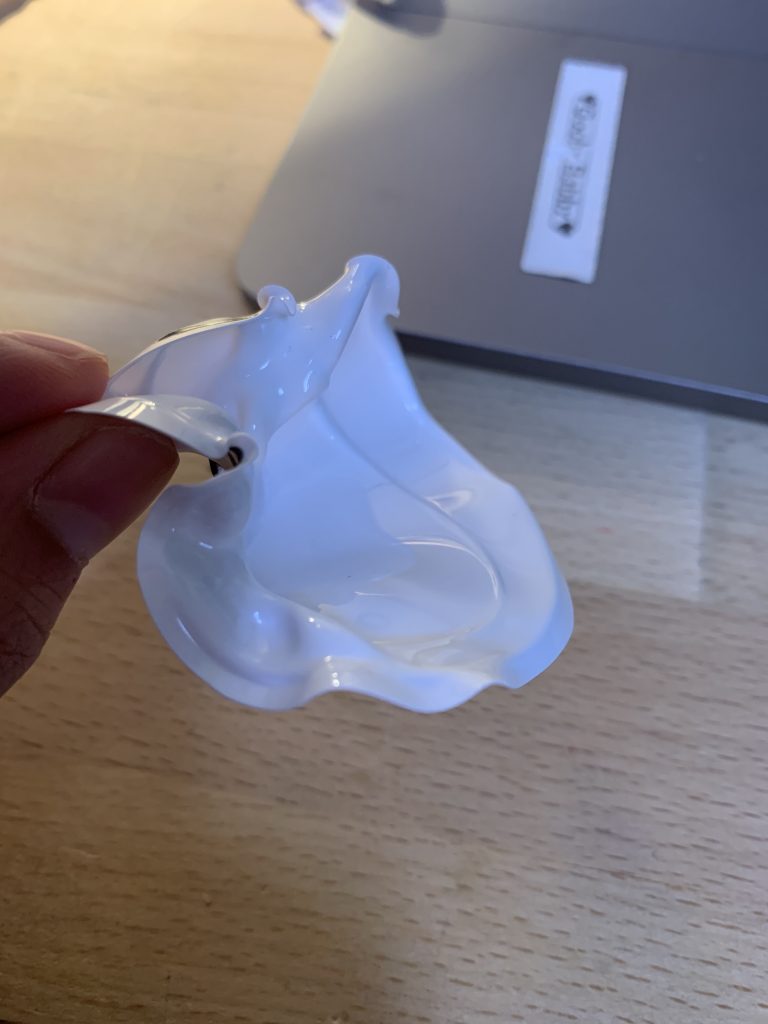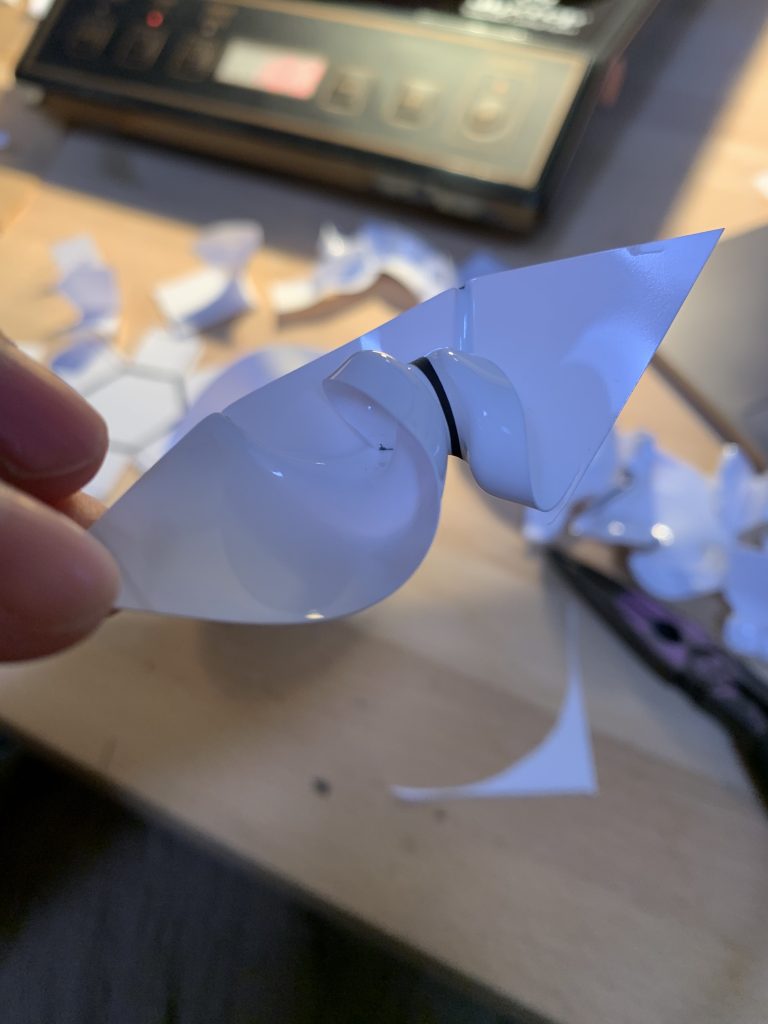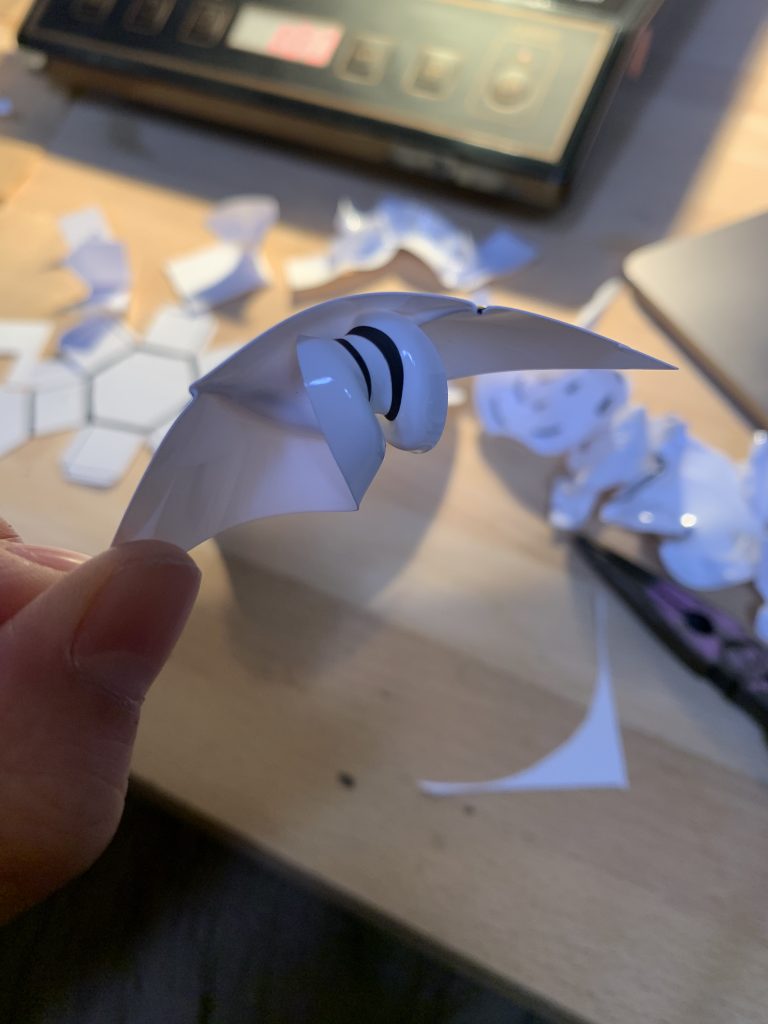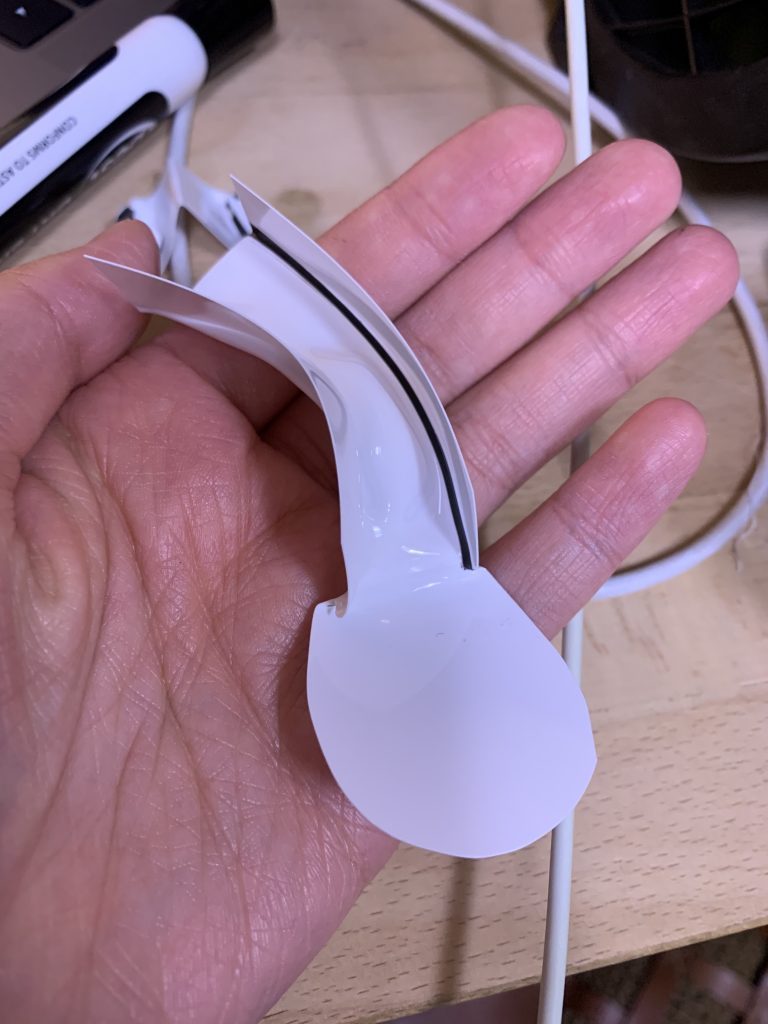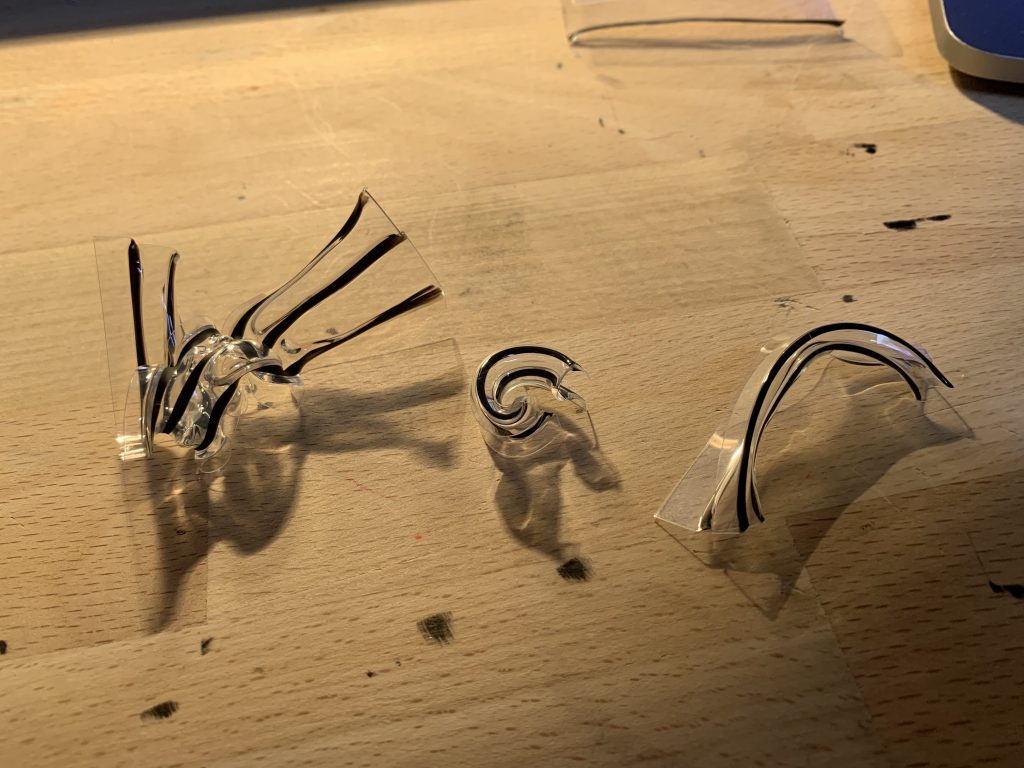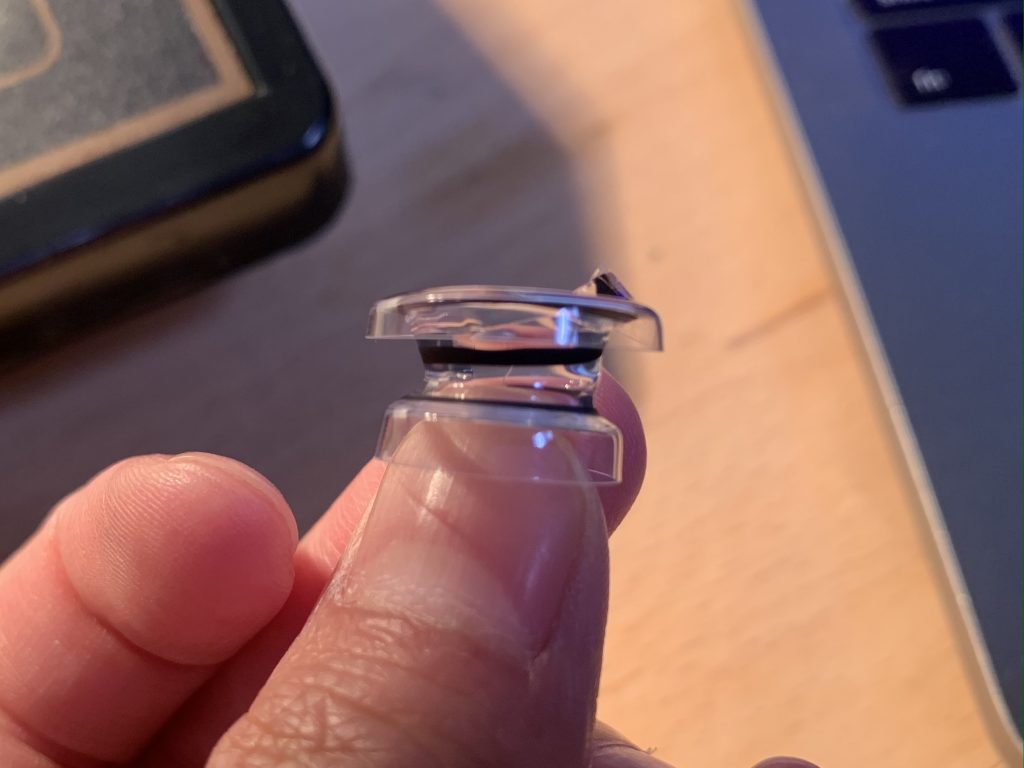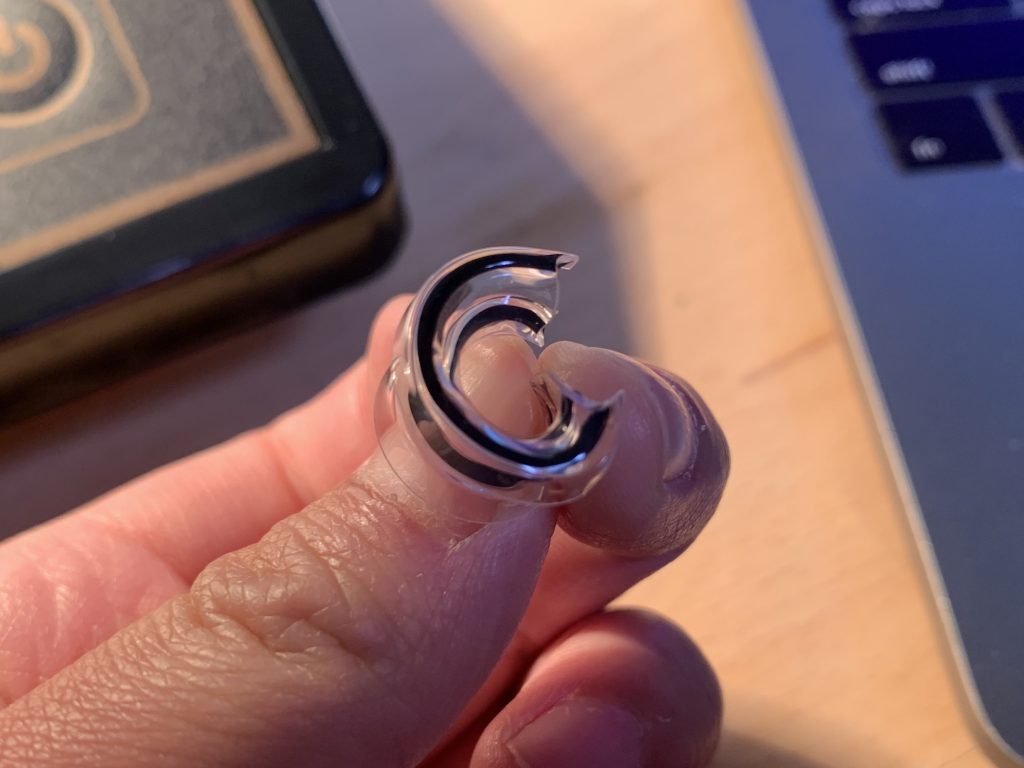Final Spoon Folds and Forms
This week we finalized the folds we are including in our final report and are doing one more lab with the printed shrinky dink paper to make sure the folds are replicable. We plan on finishing up photos and design language system graphics for the final this week. Below are the final forms.
01 Pinch Fold | Trapezoidal
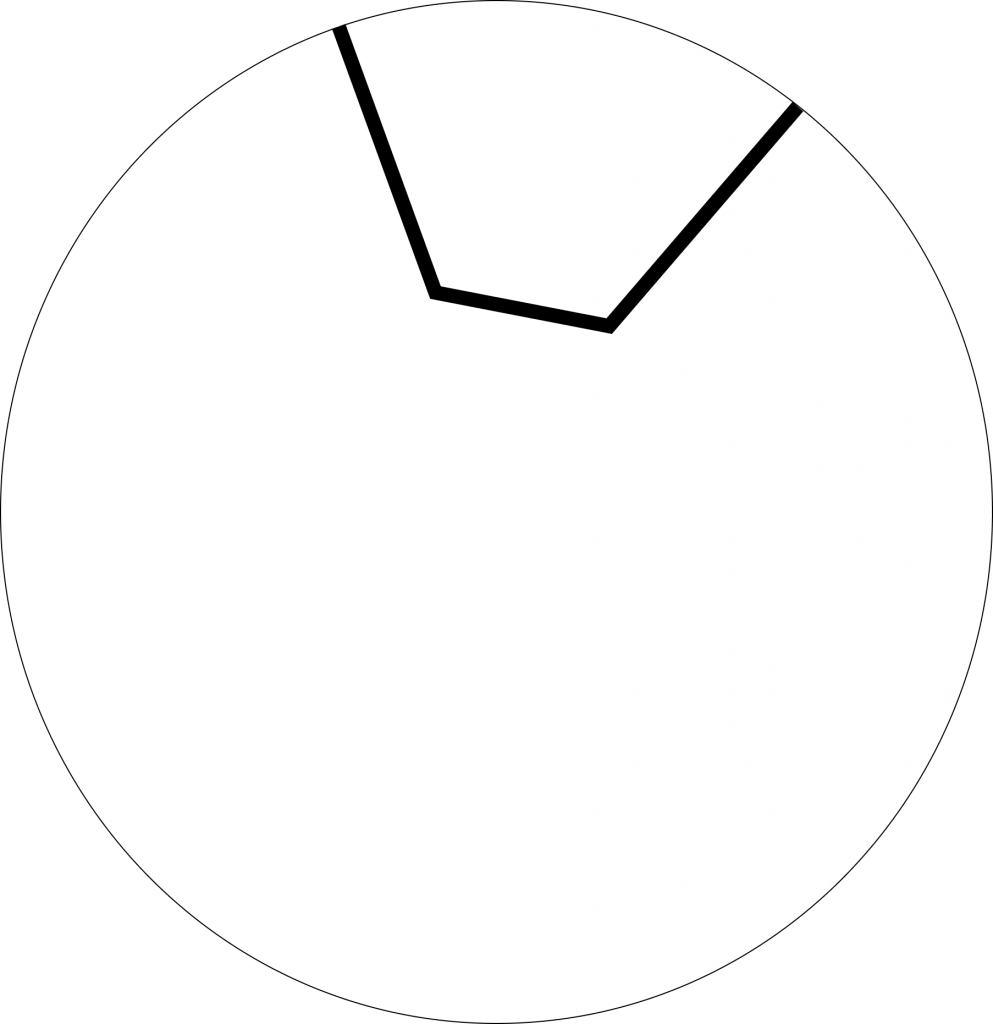
02 Cupping fold | Perimeter
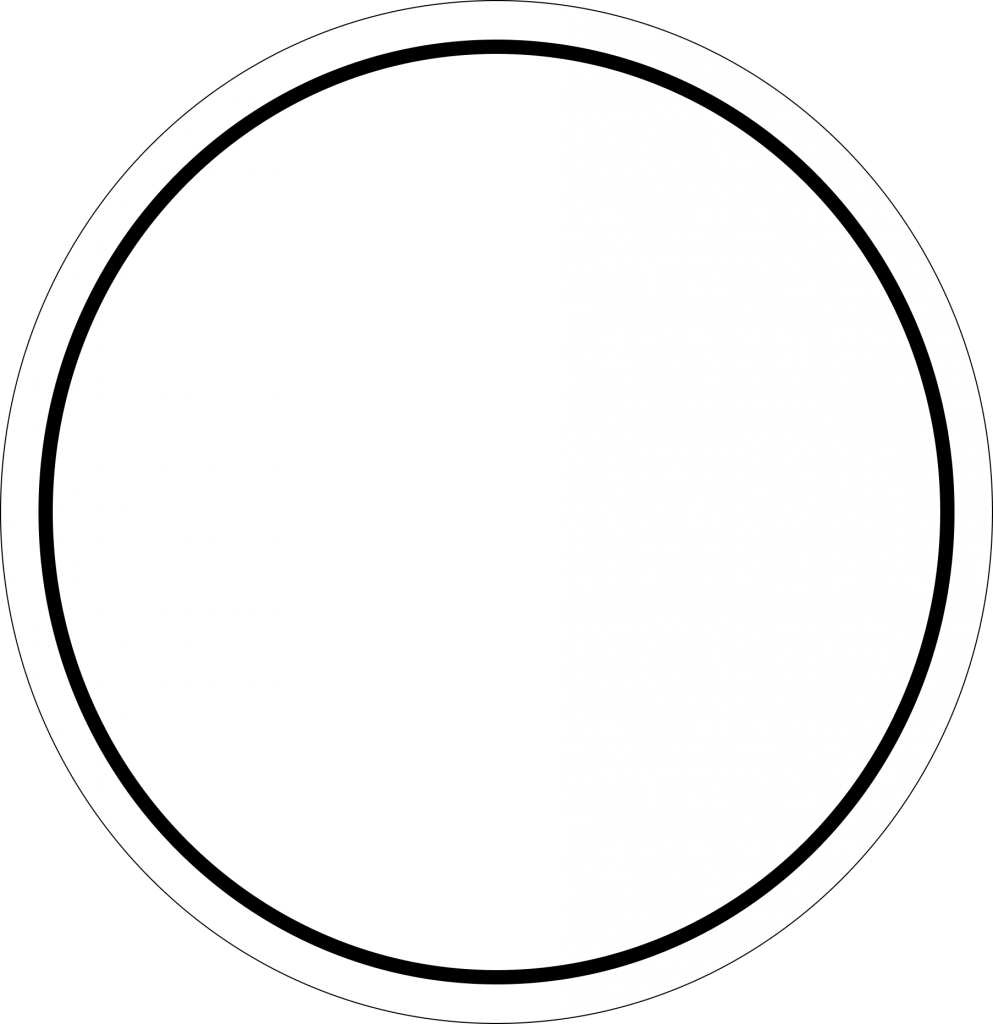
03 Spork Attempt | Defined Edge and Crinkle Folds

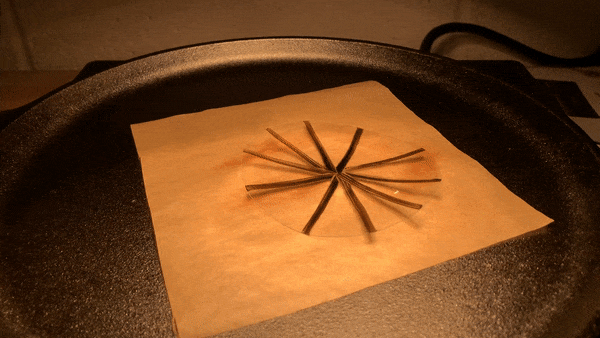
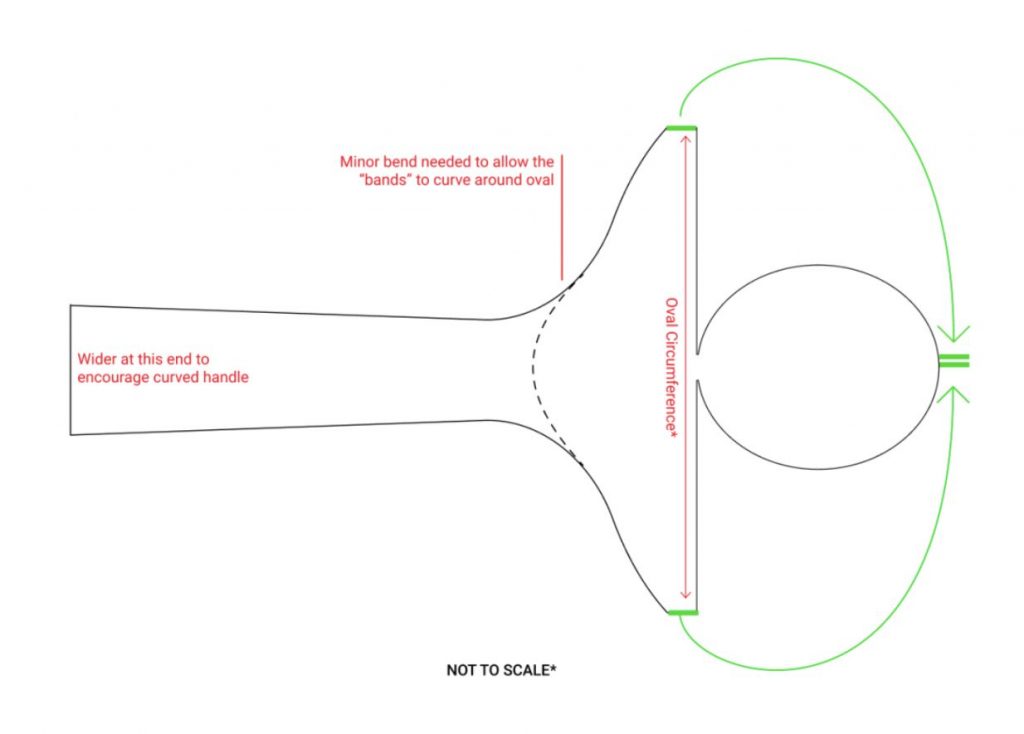
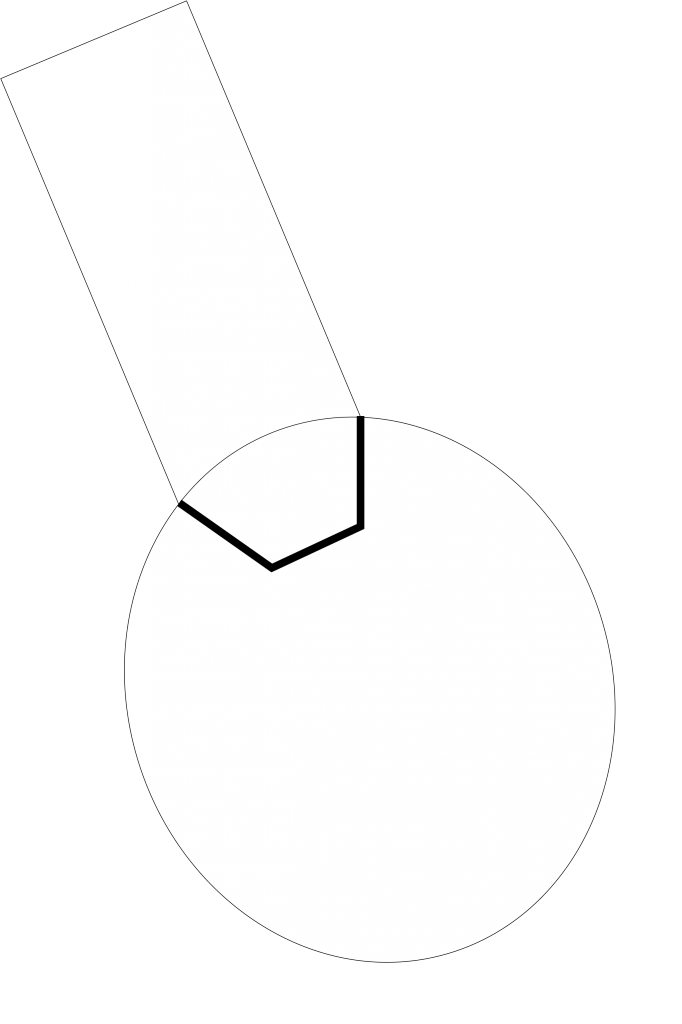
4/29 Pinch and Crinkle Folds
Why: Taking one look at this project, one might immediately think “more plastic utensils?” but the reason we decided to focus on utensils isn’t because of the materiality of polystyrene rather for the unique forms it can morph into under heat. We find potential in the application of low-touch, heat-activated morphing in the medical field where many tools are single-use for sanitary purposes. Because our knowledge base isn’t in medicine, we chose to explore the system of kitchen tools due to their universality and their uniqueness in shape and bends. We see this as a starting point to discover more accurate and technical patterns that can evolve with the shrinky dink polymer.
Weekend Update: We continue creating a system of folds for our final set of utensils
New Research:
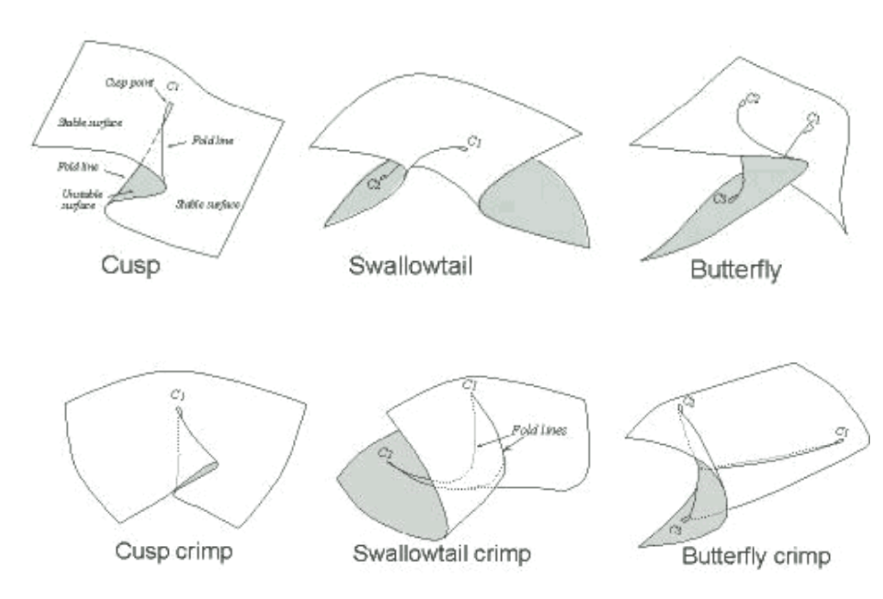
Precedent of organizing/naming curved origami from “British Origami Society”
Iterating on the spoon design:
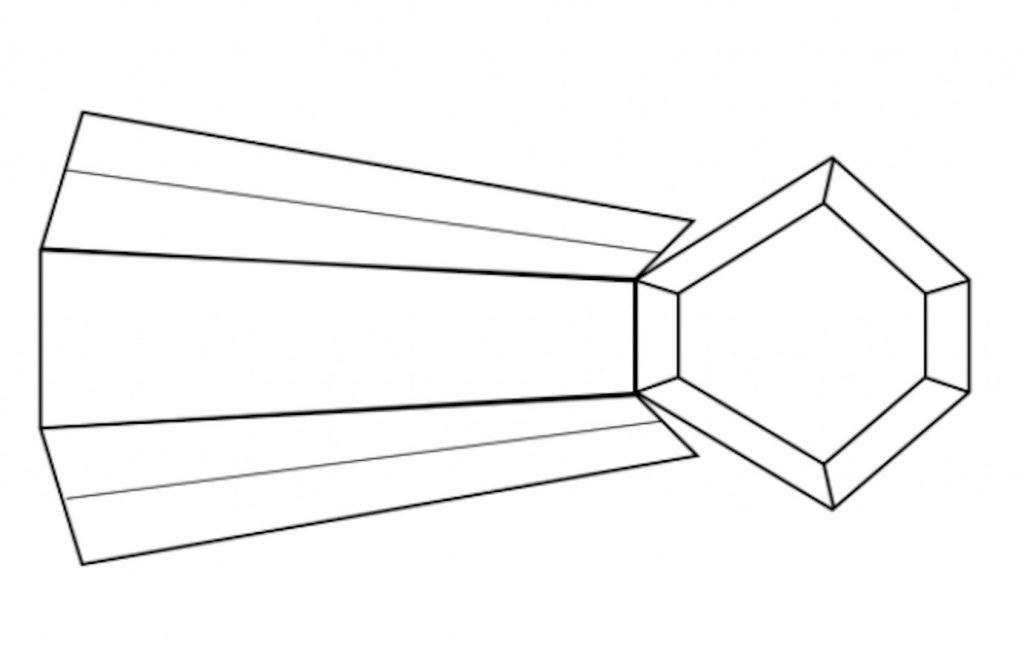
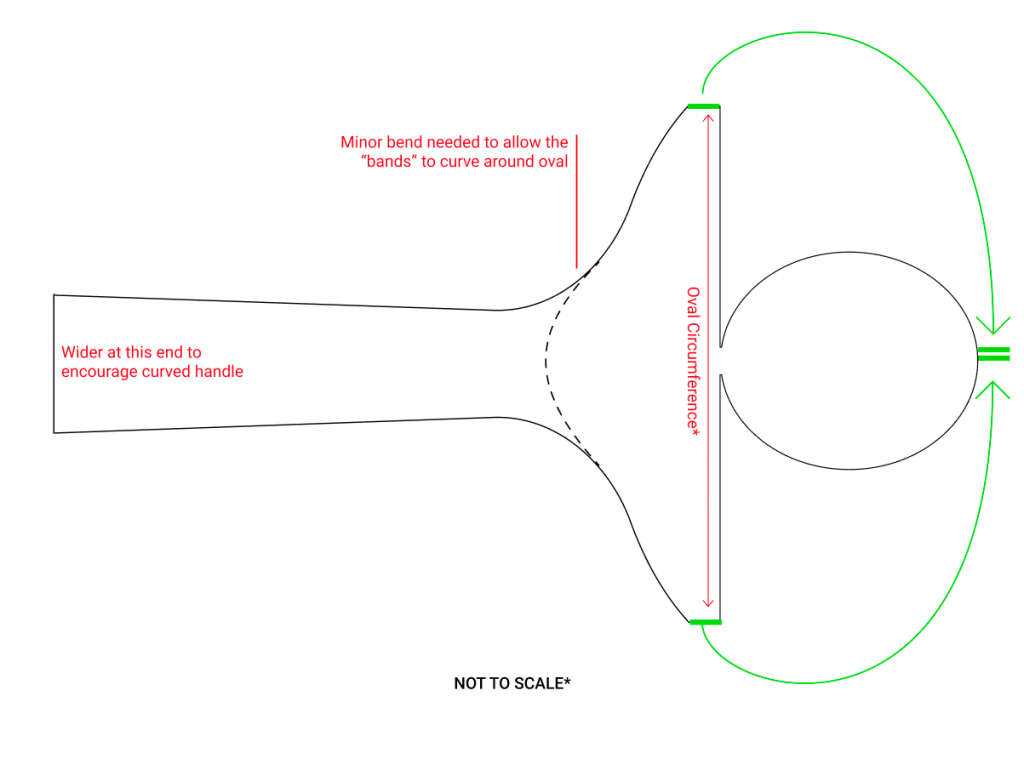
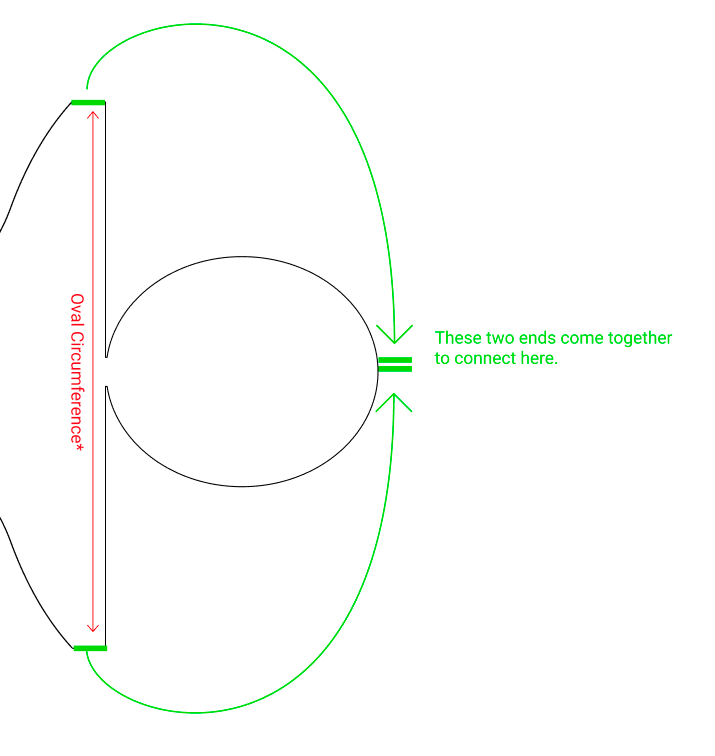
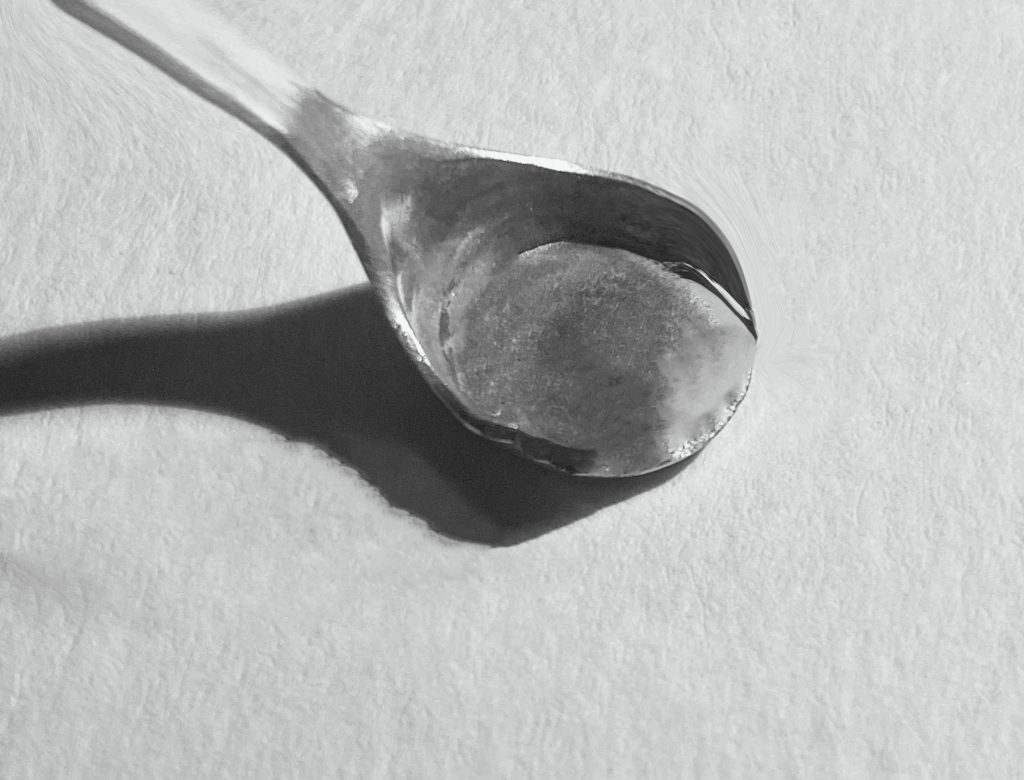
Ray used some thick tin foil to test the fold design. Thick tin foil bends more similarly to the shink paper compared to paper. This makes it a better tool for prototyping curving designs.
